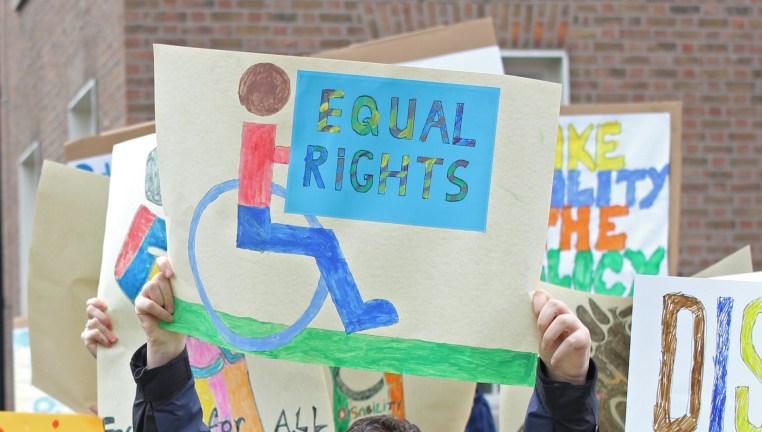Despite steering the Labour Party to a landslide victory, for prime minister Keir Starmer, the hard work is only beginning.
He faces an inbox full of problems, from crumbling national infrastructure to polluted rivers and ballooning NHS waiting lists. On top of that, years of sluggish economic growth and already stretched public finances means that, in the words of new chancellor of the Exchequer Rachel Reeves, “there’s not a huge amount of money” to throw at these problems.
One of the foremost crises facing the UK is barely mentioned – the crisis of an ageing population. Decades of low birth rates combined with ever increasing life expectancy means that the UK, like many Western states, is ageing rapidly.
- ‘I just cry’: Millions of elderly Brits in poverty as state pension falls short of basic living costs
- I’m 67 and working as a cabby. Rent and cost of living means I’ll never be able to afford to retire
The UK had 9.3 million people aged over 65 in 2000, today the number is 12.5 million – the UN predicts this number will reach 18.7 million by 2050. The relative share of old people as a part of the UK’s total population will also leap from 16% in 2000 to over 26% by 2050. This trend is even more dramatic for those aged over 80, who over the same period are predicted to increase from 4% to 10% of the total population.
These changes will place a huge strain on our already creaking welfare and healthcare system. The elderly generally require substantially more healthcare expenditure than the young, with the Nuffield Trust calculating that the average 85-year-old costs the NHS roughly eight times more than the average 25 to 30-year-old. On top of that, more retired people means more state pension costs for the government to fund. In 2023 the government spent £141bn on state pensions, substantially more than all government spending on defence, transport and overseas aid for that year combined.
Finding the money to meet these additional costs will be hugely challenging – this will be exacerbated by the fact the state will be relying on taxes from a relatively smaller number of working age adults to pay for them.
Without dramatic changes those creaking systems will collapse and it will be the vulnerable, who lean most heavily on the state, that will suffer most. A recent report by the Joseph Rowntree Foundation shows that more than two million pensioners already live in poverty. Without a functioning welfare system, that already dire figure will skyrocket.
Its not just the economics which should concern us, but also how we ensure that everyone gets to age in a dignified way. While plenty of elderly people are able to actively participate in society and enjoy their lives, too many feel isolated and cut-off. One heartbreaking survey by Age UK found that more than a million older people go at least a month without speaking to a friend, neighbour or family member. Any plans to tackle the coming population ageing crisis must also focus on the emotional and wellbeing needs of the older population as well.
It’s easy to understand why few politicians want to talk about the impact of population ageing. There is no one “silver bullet” solution, while the slow and long-term nature of the crisis make it easy to ignore, at least for now.
Although the situation seems bleak, there are things that we can start to do now. Most importantly, our political leaders need to be upfront and honest about the challenges presented by an ageing population, and how it is in all our collective interests to try and address them. In particular, we need to fundamentally rethink our approach to ageing and retirement. In a world where one in six new born babies can expect to live to at least 100, how feasible is it for most of the population to continue to retire in their mid-60s? Rather than the current “cliff edge” retirement model that we have today, where many completely stop working once they reach a certain age, we need to instead re-conceptualise retirement as a long-term process. Those who are willing to continue working after they reach the state retirement age should be helped to stay in employment for as long as possible, such as by requiring employers to make reasonable adjustments for elderly staff including allowing part-time working and more flexible conditions.
We also need to consider looking at more community-based ideas. Sweden is trialling intergenerational living solutions, called SällBo, where over 70-year-olds live with those aged under-25, and spend time interacting together in communal spaces. Although this project has only been in action for a few years, there is evidence that it is diminishing feelings of isolation in its elderly participants. Elsewhere, Japan has long had centres called Yoro Shistesu, which provide combined care facilities for both children and the elderly together. Again, the results are extremely positive, with many elderly people saying that it makes them feel connected to society. While some may question whether such schemes could work in the UK, they must be worth trying. Big problems, after all, require bold thinking.
Finally, the government should consider setting up a fund to invest in emerging technologies which could be used to assist with long-term care of the elderly. Wearable sensors could alert care staff if someone has a fall or is taken unwell, while video conferencing could allow the elderly to better stay in touch with friends and family, and combat loneliness. All of these could not only save costs, but also allow the elderly to retain their dignity and independence for longer.
The crises facing Starmer are complex and numerous. Unlike the NHS waiting lists or the intractable housing crisis, relatively simple and low cost measures could help allay the immediate effects of this one. Instead of travelling the path of wilful ignorance followed by his predecessors, Starmer should take decisive action and spare a lot of people a lot of suffering.
James Rose is a journalist specialising in demographics.
Do you have a story to tell or opinions to share about this? Get in touch and tell us more. Big Issue exists to give homeless and marginalised people the opportunity to earn an income. To support our work buy a copy of the magazine or get the app from the App Store or Google Play.









